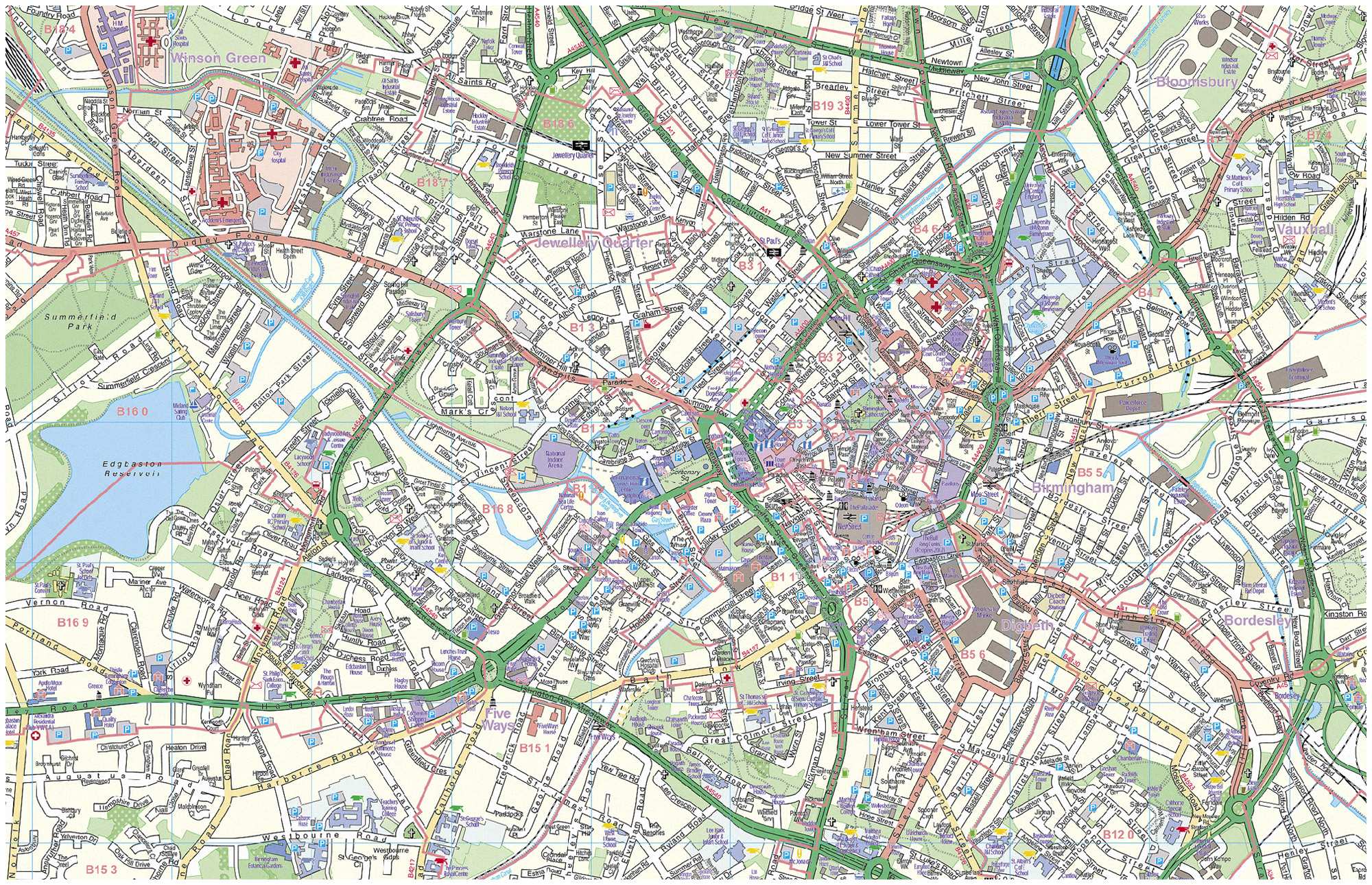Coverage

Birmingham city centre, or Central Birmingham, known by locals as “Town” is the business, retail and leisure hub of Birmingham, West Midlands. Following the removal of the Inner Ring Road, the city centre is newly defined as being the area within the Middle Ring Road.[1] Birmingham City Centre is undergoing massive redevelopment with the Big City Plan. This means there are now nine emerging districts and the city centre is approximately five times bigger.
Digbeth is an area of Central Birmingham, England. Following the destruction of the Inner Ring Road, Digbeth is now considered a district within Birmingham City Centre. As part of the Big City Plan, Digbeth is undergoing a large redevelopment scheme that will regenerate the old industrial buildings into apartments, retail premises, offices and arts facilities. There is still however much industrial activity in the south of the area. As part of the plans Digbeth Coach Station has also been redeveloped and renamed Birmingham Coach Station.
The Chinese Quarter of Birmingham, England is located in the city centre’s Southside. It is an area with a predominantly Chinese influence as a result of a concentration of Chinese owned businesses, organisations and social clubs. The area now covers a neighbourhood that includes Hurst Street, Ladywell Walk and Pershore Street. Many of the buildings in the area have Chinese architectural features and art including Chinese style roofs and wall murals in the Arcadian Centre depicting historical scenes typical of the Silk Road.
Five Ways is an area of Central Birmingham. It takes its name from a major road junction, now a busy roundabout (with pedestrian subways through a traffic island) to the south-west of the city centre which lies at the outward end of Broad Street, where the Birmingham Middle ring road crosses the start of the A456 (Hagley Road).
Ladywood is a constituency of part of the city of Birmingham, represented in the House of Commons of the UK Parliament since 2010 by Shabana Mahmood of the Labour Party.
The Jewellery Quarter is an area of central Birmingham. Situated in the north western area of the Birmingham City Centre, there is a population of around 19,000 people[1] in a 1.07-square-kilometre (264-acre) area.[2] The Jewellery Quarter is Europe’s largest concentration of businesses involved in the jewellery trade, which produces 40% of all the jewellery made in the UK.[3] It is also home to the world’s largest Assay Office, which hallmarks around 12 million items a year.[4] Historically the Jewellery Quarter has been the birthplace of many pioneering advancements in industrial technology.
